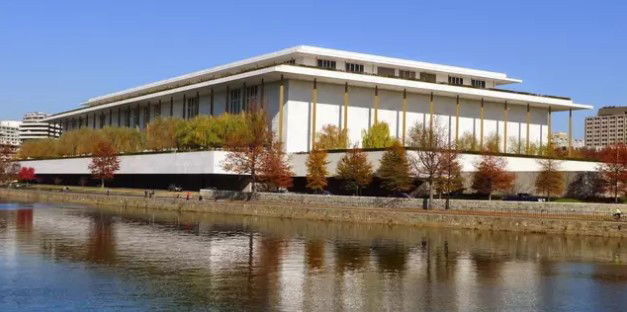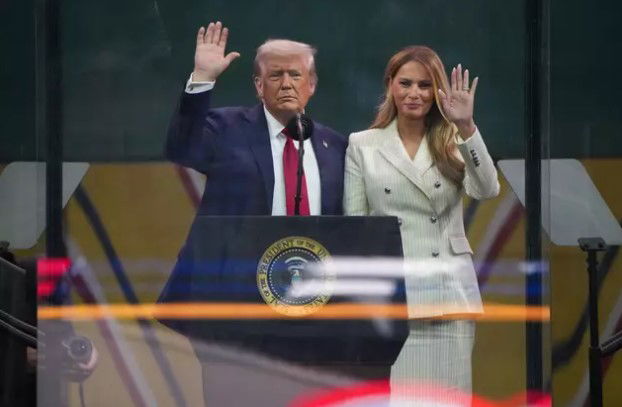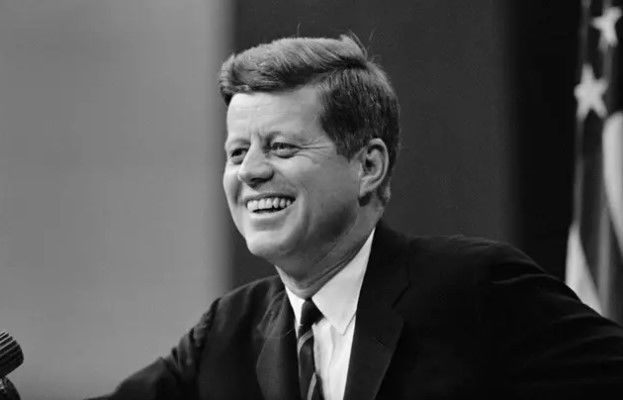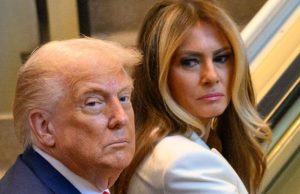
A Republican-led effort in the House of Representatives to rename a famous cultural venue in honor of Donald and Melania Trump has run into legal and public backlash.
The proposal aimed to rebrand the Kennedy Center Opera House—a prestigious performing arts venue in Washington, D.C.—due to what some claimed was the former First Lady’s dedication to the arts and humanities.
Built in 1971, the Kennedy Center honors President John F. Kennedy, who was assassinated in 1963 and had championed the arts during his time in office.
Following his inauguration, Donald Trump was appointed chairman of the Kennedy Center. One of his first acts was the mass removal of existing board members, a decision that drew significant public criticism at the time.
More recently, Republicans introduced a plan to rename the Opera House after Melania Trump, now 55. Days later, a broader proposal emerged to rename the entire complex the “Donald J. Trump Center for the Performing Arts.”

This initiative was introduced by Missouri Republican Rep. Bob Onder as part of the so-called “Make America Great Again Act.”
It is currently bundled within a wider appropriations bill concerning the Interior Department and still needs approval from both chambers of Congress.
The initiative has not gone unnoticed—or unchallenged. Critics across the political spectrum, including John F.
Kennedy’s grandson, Jack Schlossberg, has questioned what artistic or cultural contributions the Trumps have made to merit such an honor.
Some skeptics on social media even questioned Melania Trump’s qualifications for any cultural recognition, referencing her past immigration status and controversial use of the so-called “Einstein visa.”
However, beyond public criticism, the proposal may face a more fundamental obstacle: the law.

NBC News recently reported that the renaming may violate federal regulations. Former board members of the Kennedy Center explained that a law created at the time of the Center’s establishment prohibits renaming any of the buildings, except for the Eisenhower Theater.
That theater was named after President Dwight D. Eisenhower, who authorized the center’s initial construction in 1958.
Although the project stalled, President Kennedy revived interest in it, which led Congress to eventually name the facility in his honor after his assassination.
Under existing U.S. law, particularly a 1983 statute, no additional memorials or name changes can be made to the Kennedy Center’s public areas.
The law explicitly states: “After December 2, 1983, no additional memorials or plaques like memorials shall be designated or installed in the public areas of the John F. Kennedy Center for the Performing Arts.”
Maine Democratic Rep. Chellie Pingree, the lead Democrat on the Interior Appropriations subcommittee, strongly opposed the move.

Her office emphasized that Republicans can’t legally rename the building without full congressional authorization.
A spokesperson warned that unless Republicans successfully pass their full budget package—which is historically unlikely—the proposal is dead on arrival.
The spokesperson also raised the concern that Trump or his allies might attempt to bypass Congress and move forward unilaterally, which would have no legal foundation and would likely spark a constitutional court battle.
Interestingly, Rep. Mike Simpson of Idaho, who backed the measure, admitted that neither Melania Trump nor the White House had prior knowledge of the proposal. However, he said both parties reached out afterward to express gratitude.


















